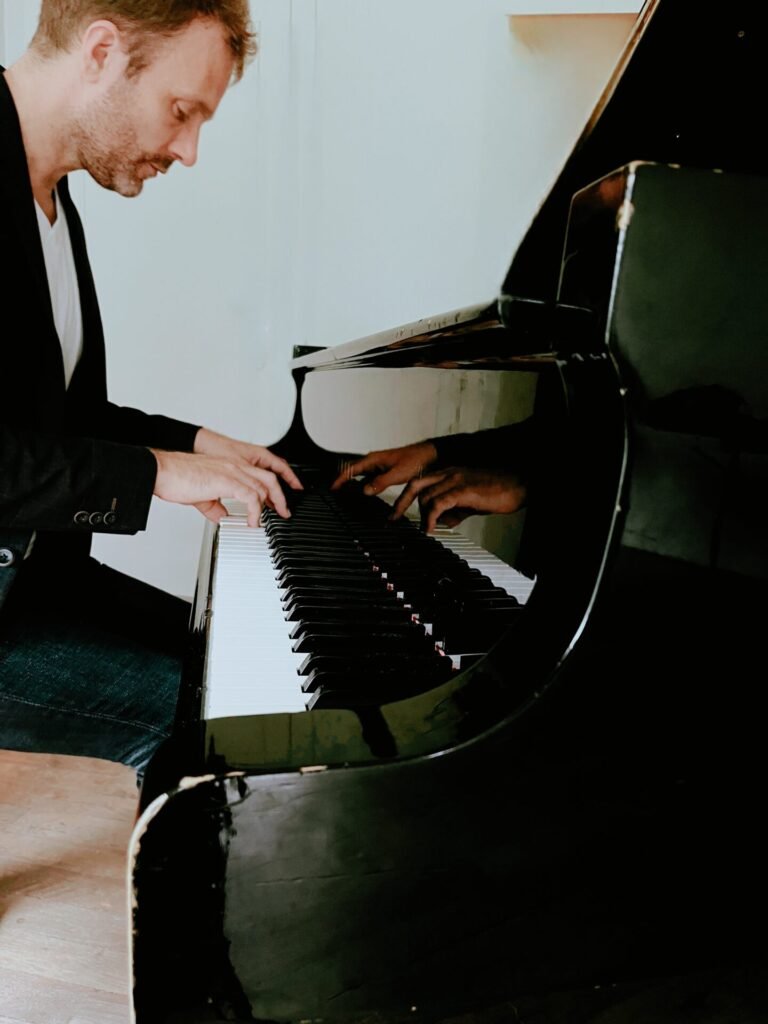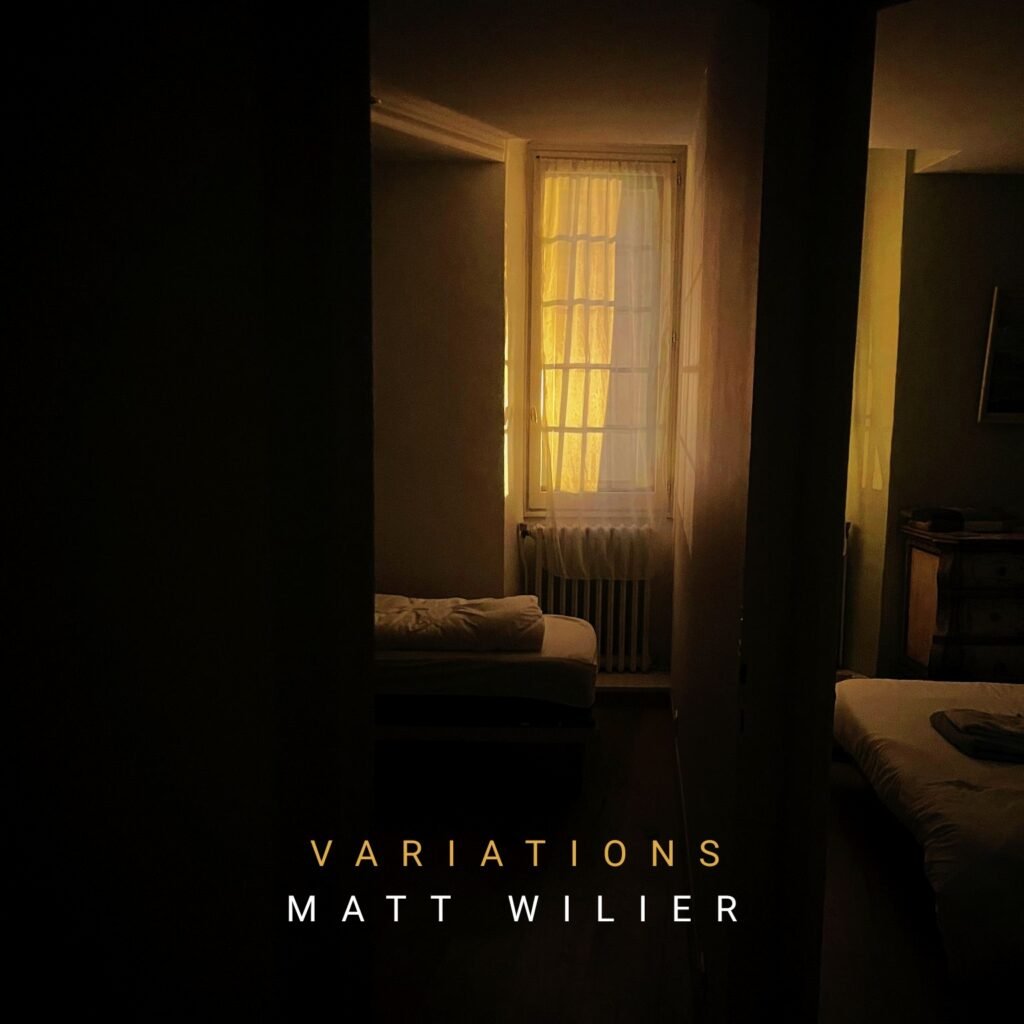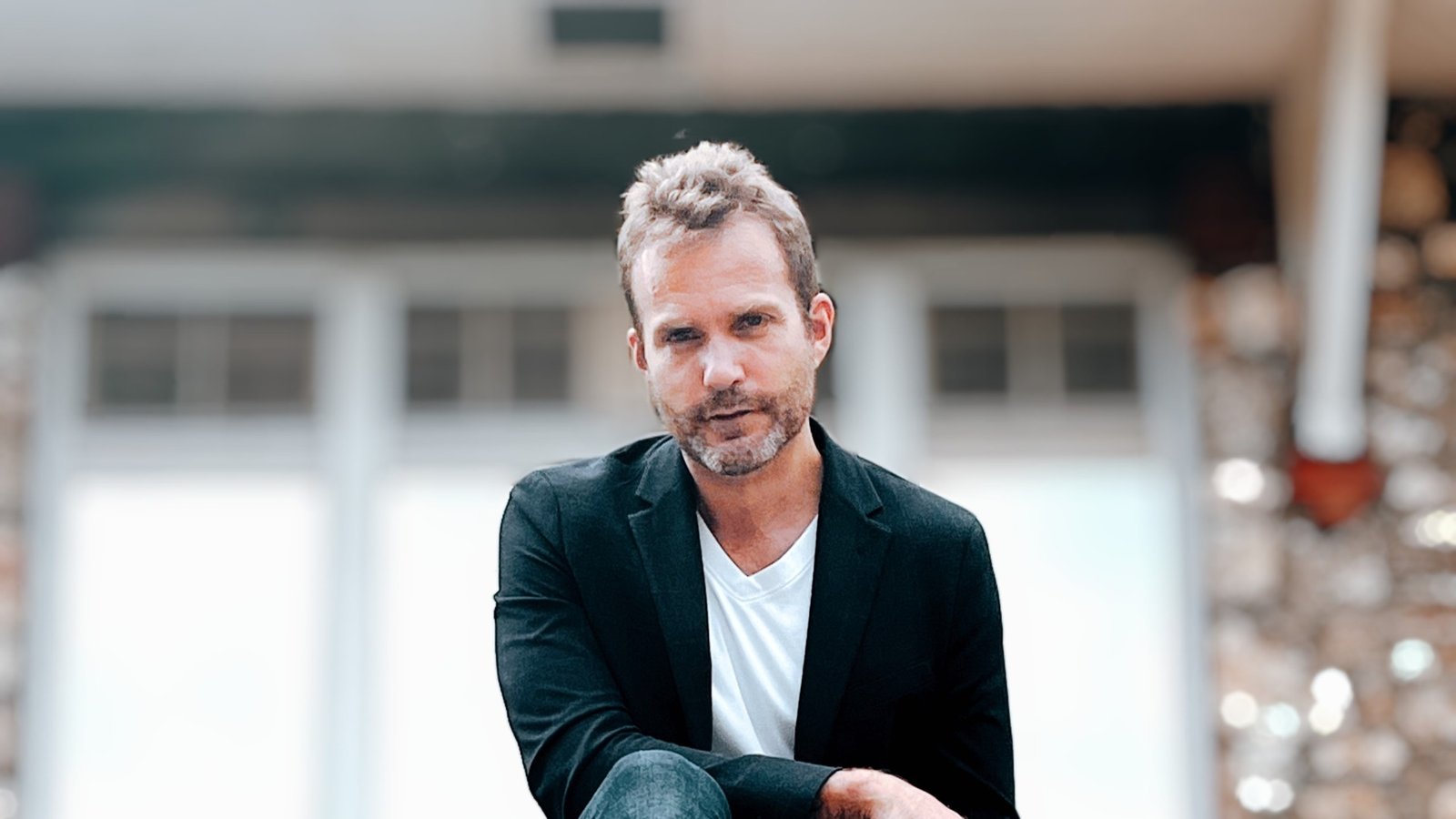Matt’s work embodies both the Classical tradition and the minimalism of contemporary music. His music is accessible, often melancholic as a way to take time in everything. We immediately think of music for films! Check out the exclusive Interview below:

1. Can you tell us a bit about where you come from and how it all got started?
MATT WILIER: I come from Paris, in France.
It all started at the age of 5 when I discovered this instrument, the piano, at my great-grandparents’ house. There was a Pleyel belonging to the apartment, magnificent.
2. Did you have any formal training or are you self-taught?
MATT WILIER: I began improvising on piano at the age of 5, with no knowledge of music other than my own feelings and sensations. After practicing for a few years, it was at the music conservatory that I discovered technique and then classical music.
From the age of 12, I would fall asleep listening to Keith Jarrett’s solo piano albums, including ‘The Köln Concert’ and ‘La Scala’. During the same period, after having studied the Romantics (and Chopin’s rubato), I was captivated by impressionist music and became fascinated by the French movement ‘Les Six’. But ultimately, I consider ‘Gaspard de la Nuit’ by Maurice Ravel to be one of the most beautiful piano works.
While retaining my initial desire for improvisation, I threw myself into minimalist and repetitive music, freeing myself from judgement and taking an interest in sonic resonances, frequencies and vibrations of the piano as proof of the passage of time.
3. Who were your first and strongest musical influences and why the name ‘MATT WILIER?
MATT WILIER: First and foremost, I was captivated by Keith Jarrett’s solo piano, then came a passion for film music. I think the first film score that dazzled me is ‘Blade Runner’ by Vangelis (few years after the release). A passion for synthesizers and recording studio began at that period. And then a few years later, after listening to a lot of horror film scores, I heard the music of the feature film ‘The Thin Red Line’ by Hans Zimmer, which remains one of my favorites.
4. What do you feel are the key elements in your music that should resonate with listeners, and how would you personally describe your sound?
MATT WILIER: I am drawn to the repetition – clusters – characteristic of repetitive minimalist music. It brings a calmness and trance-like state that allows the listener (and the musician) to take time. My music is often melancholic, some might say sad, but that’s subjective! Lastly, the piano is almost always at the heart of my compositions – for now.

5. For most artists, originality is first preceded by a phase of learning and, often, emulating others. What was this like for you? How would you describe your own development as an artist and music maker, and the transition towards your own style, which is known as POP?
MATT WILIER: It is difficult to identify the style of music we are in because we are never entirely in line with our peers, nor completely in opposition. I realized that I enjoy composing in a certain way, and this approach can be linked to minimalist, repetitive, and neo-classical music – but this is difficult to categorize. I constantly listen to Philip Glass, Hania Rani, Max Richter, and more generally, all those who emerge in this musical vein. But I still have an admiration for Keith Jarrett’s solo piano pieces. My style is not very far from this repetitive and minimalist music, but it is necessarily a fusion of several influences that originate from classical and then contemporary music.
6. What’s your view on the role and function of music as political, cultural, spiritual, and/or social vehicles – and do you try and affront any of these themes in your work, or are you purely interested in music as an expression of technical artistry, personal narrative, and entertainment?
MATT WILIER:
I tend to think that the music I make is a spiritual vehicle. At the very least, it has the virtue of allowing the mind to rest and why not to withdraw to open new horizons.
My creative process starts with a desire, a sound that I like (a dissonance, for example, sound vibrations that correspond to the moment…). This inspiration, often linked to chance, comes from trying, fumbling, searching for other chords, other sounds… there is a hypnotic dimension conducive to letting go.
So most often, for me, music is an expression of a personal narrative, that of the moment.
7. Do you feel that your music is giving you back just as much fulfillment as the amount of work you are putting into it or are you expecting something more, or different in the future?
MATT WILIER:
The process of creation, recording, and promotion should form a whole, in my opinion. I thrive throughout this process, from improvisation, working on clusters of notes, recording, mixing, mastering, and searching for a title and artwork.
And so, I don’t see a piece of music as an end but as the beginning of other things: finding an audience, making the piece known, exploiting it… then I learn from my pieces. Therefore, things evolve and progress to continue even better. All of this brings me a lot.
8. Could you describe your creative processes? How do usually start, and go about shaping ideas into a completed song? Do you usually start with a tune, a beat, or a narrative in your head? And do you collaborate with others in this process?
MATT WILIER: I always start with an improvisation. This was the case for my latest album ‘Variations’. The mood depends on the day but also on the project I’m working on. When it comes to working on my own tracks, there is no set schedule. When there are constraints or particular moods that I’m not used to working with, I might postpone starting and I try to reate the perfect moment.
So, I start with an improvisation. If I’m going in circles, I listen to tracks, look at scores from classical composers, for example. When I find an idea that I like, I work on the rhythm… at the same time, an imaginary world around this idea forms, which allows me to move forward. I work in blocks, clusters that I assemble. I record all my attempts very quickly and keep the take that best matches the mood – even if it’s sometimes not technically perfect.
My creative process is, ultimately, solitary. Even though I easily share my tracks, even at the demo stage, my circle is limited. However, I have felt the need to open up this process. I am currently working on a solo piano album that will have a counterpart in a piano/cello version. At this stage, the cellist has received rough demos and is trying things on his side… I haven’t heard anything yet! I’m excited to discover the first notes we will record in the fall of 2024.
9. What has been the most difficult thing you’ve had to endure in your life or music career so far?
MATT WILIER: I long thought that I didn’t have the “right,” that I wasn’t good enough. It was very frustrating. I admire very well-known composers and amazing pianists… but I had to reach the point where I could tell myself, “you too can publish your music,” and that’s what I did.
10. On the contrary, what would you consider a successful, proud or significant point in your life or music career so far?
MATT WILIER: Signing a publishing deal with Archangelo Songs is a great success for me and a springboard that motivates all my latest compositions and the future. And indeed, being less alone, working with a cellist on the next album, and the publishing deal to reach audiovisual productions more directly is, for me, an achievement.
11. With social media having a heavy impact on our lives and the music business in general, how do you handle criticism, haters, and/or naysayers in general? Is it something you pay attention to, or simply ignore?
MATT WILIER: My audience isn’t large enough yet to face that situation. I tend to think it shouldn’t be given attention because it is often caused by a form of success through wide exposure… but I don’t know exactly how I would react if it happened to me.
12. Creative work in a studio or home environment, or interaction with a live audience? Which of these two options excites you most, and why?
MATT WILIER: I usually work at home, thinking it is the best place, but I admit that going out, whether to the studio or in preparation for a concert, rethinking the tracks leads to interesting discoveries.
13. Do you think is it important for fans of your music to understand the real story and message driving each of your songs, or do you think everyone should be free to interpret your songs in their own personal way?
MATT WILIER: I propose an ambiance, a mood. But I realize that no one hears the tracks in the same way. So, for me, it’s obvious to let the tracks live beyond the reason for their initial existence. And that’s what’s exciting!
Of course, images pass through my mind when I compose. The artwork and track titles of my latest album ‘Variations’ speak of a relationship between two people and, especially, the end of this relationship and the ensuing emptiness. However, a track like ‘As you walk through the light’ can be interpreted differently. The tracks ‘Feeling numb, Pt. 1’ and ‘Feeling numb, Pt. 2’ don’t really express that sensation upon listening (even though there is that repetitive aspect that can feel confining); or the track ‘Feel the slowing of time,’ which expresses a state of mind, like ‘When the longing returns.’ Then there is the discovery of the other in ‘Another part of you’ and ‘Another part of me’… but this story of the couple is my current mood and might not be the same for the audience.
KEEP IN TOUCH:
INSTAGRAM | SPOTIFY | YOUTUBE

Photo Credit: Clemence.chb
